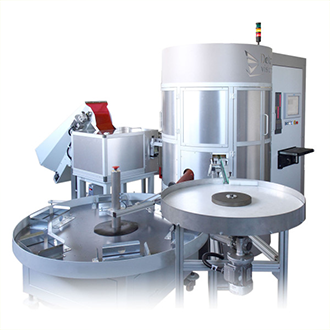Control and selection up to 100% of turned parts

In the perspective of utmost perfection while producing turned parts in accordance with the technical specifications required by customers, we have invested in an optical sorting machine specifically developed by Delta Visione for a visual and dimensional control up to 100% of high-precision machined components.
The qualitative request to be reached with ppm levels varying from 0 to 50 is set by customers operating in more complex sectors: our standard sampling procedure of turned parts at a defined frequency, which ensures a quality level up to 2700 ppm, is no longer enough.
Technical specifications: automatic sorting of small turned parts
It is a machine equipped as follows: manual loading; clamping within the rotary table for a 360 ° control of turned parts; comparisons and measurements of quotas by taking 12 photographs throughout the entire quality cycle and packaging of small turned components identified as “good” ones.
Quality control is no longer a choice but a must: in order to be able to provide ad hoc turned parts, we use the best manufacturing technologies with the aim of successfully distinguishing ourselves from our competitors in the third-party B2B market. After processing, our company mission is to fulfil customer satisfaction by applying a trade policy strongly oriented to TQM “Total Quality Management”, i.e. zero defect approach for continuous improvement.





